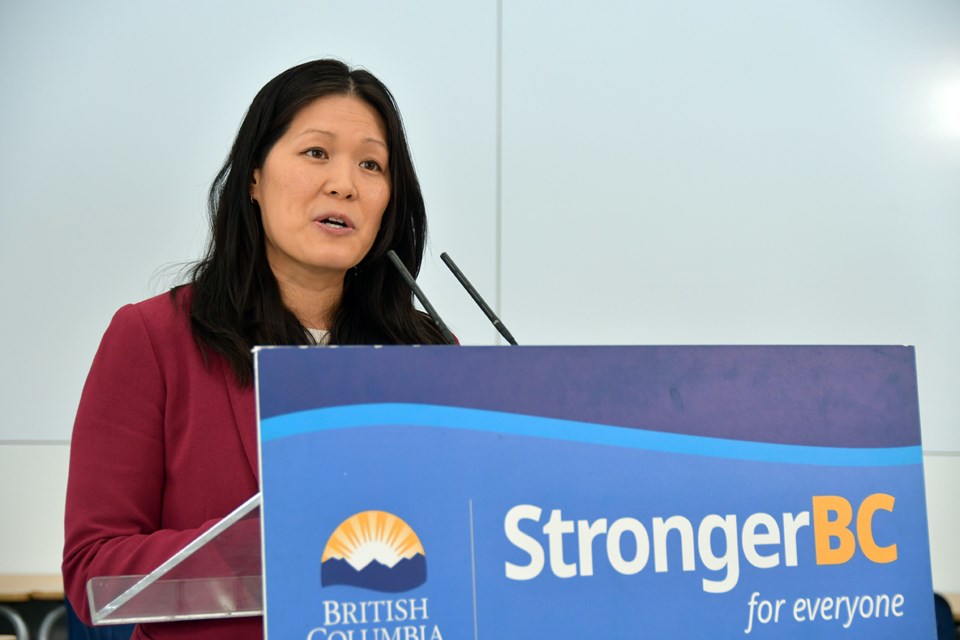The B.C. government is running into early opposition from First Nations partners to its new legislation to fast-track building projects, indicating, despite a lot of rhetoric, it may not have done the proper groundwork on the bill.
The Union of BC Indian Chiefs raised concerns about Bill 15’s power to allow cabinet ministers to write alternative environmental assessment processes for projects like mines, mills, hospitals and schools, to get them approved more quickly. Critics are worried it could mean watered-down environmental safety in the name of expediency.
“Bill 15 raises concerns about projects being fast tracked under the guise of responding to Trump’s tariffs, and watering down the EA [environmental assessment] process,” read the statement.
“Additionally UBCIC is concerned the Province is not upholding its own interim process on alignment of laws with UNDRIP [United Nations Declaration on the Rights of Indigenous Peoples], or UNDRIP itself.”
That interim approach, crafted in 2022, was supposed to spell out clearly how government would work on “co-developing laws” using “an approach of law-making that is thoughtful, consistent, and supports legal commitments to affirm Indigenous rights.”
Another indication that engagement with First Nations group didn’t happen came from the Ministry of Infrastructure itself, which stands to get extraordinary powers under the bill to override municipalities, issue permits and bypass environmental processes for projects the premier deems of “provincial significance.”
“The ministry has begun engagement with First Nations on this legislation through notifications and information sessions, and those conversations will continue,” it said in a statement.
Begun consultation? By notifying Indigenous leaders the bill is already on the floor of the house? That doesn’t sound like the up-front, co-development of laws spelled out by the Declaration on Rights of Indigenous Peoples Act.
“Given the enabling nature of the legislation, deeper consultation with First Nations is planned to help inform development of regulations,” read the ministry statement.
Infrastructure Minister Bowinn Ma and ministry officials have tried to stress the legislation is in compliance with DRIPA because of a section that says any regulation or order made by the minister “may not be made in relation to provisions of an enactment respecting engagement with Indigenous peoples, as defined in the DRIPA.”
The clause appears to be a safeguard against a current or future minister steamrolling Indigenous leaders by cutting out the consultation process entirely.
But later in the legislation, there’s also a section that allows the minister to craft new, shortened, environmental assessment processes, including orders “establishing timelines of an assessment” while “prescribing consensus-seeking opportunities in relation to participating Indigenous nations” and “prescribing requirements for public participation and engagement.”
That would seem to give the minister powers to cut off consultation on a project government intends to approve, and define how Indigenous nations will be allowed to participate within that shortened process.
All of that ties into a larger concern — namely, is it possible to truly achieve Indigenous consent on a project the premier has already declared as provincially significant, begun issuing permits to and is moving to approve as quickly as possible? Or, by that point, is consultation just a fait accompli?
Add that to the list of growing questions and concerns about Bill 15.
Rob Shaw has spent more than 17 years covering B.C. politics, now reporting for CHEK News and writing for Glacier Media. He is the co-author of the national bestselling book A Matter of Confidence, host of the weekly podcast Political Capital, and a regular guest on CBC Radio.
[email protected]
🚨New newsletter alert! Stay ahead of the curve in B.C. politics. Get expert political analysis delivered straight to your inbox, plus inside scoops and other stories from across the province.
Sign up here for the Capital & Coast newsletter.



